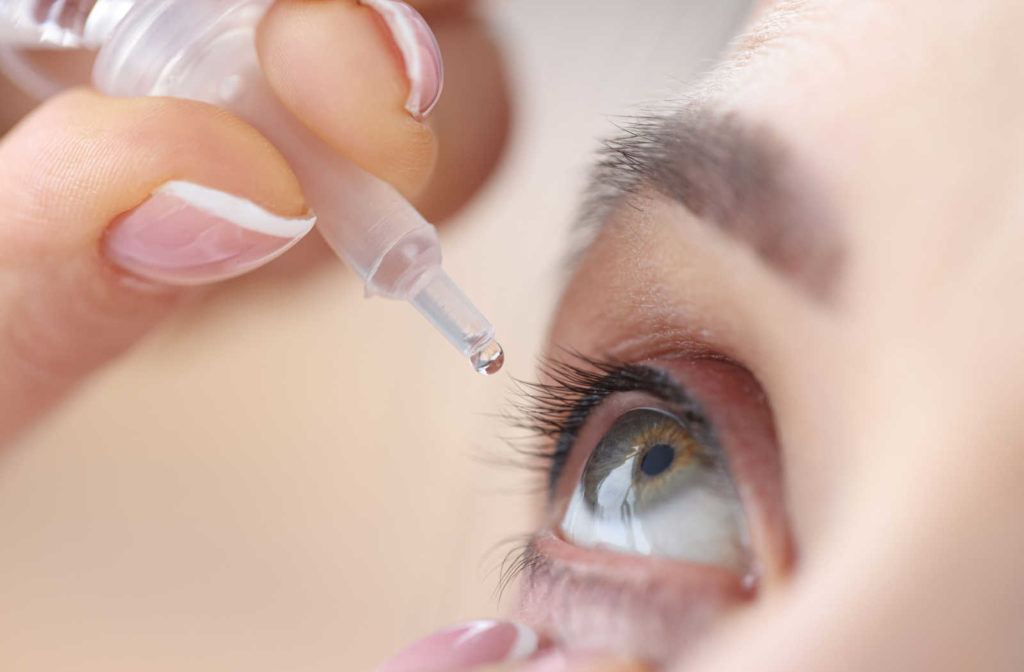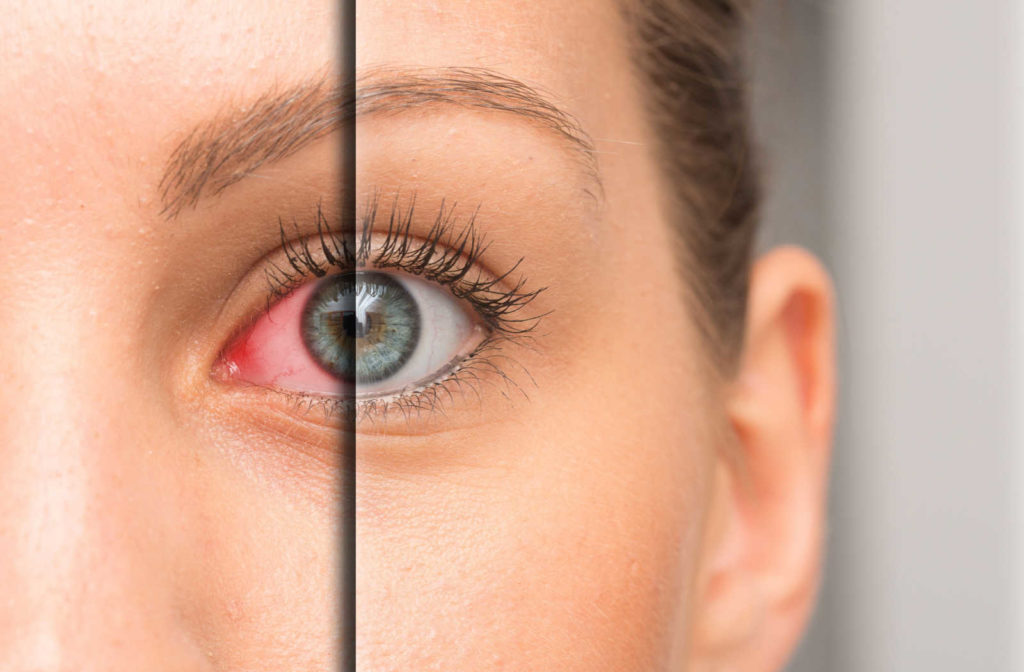Dry eyes are one of the most common complaints heard by eye care professionals when talking to contact lens wearers. With more than half of contact wearers reporting dry eyes, it’s no surprise you may be experiencing dry eye while wearing contact lenses too.
This sensation is called contact lens related dry eye. It’s the result of the mechanical factors and oxygen deficit that results from having a contact lens on your eye. Your eyes are one of the only parts of the body that receives oxygen directly from the air, rather than your bloodstream. Limited oxygen flow can lead to reduced metabolic function, poor tear production and result in your eyes feeling sandy, gritty, burning or even painful.
Contact lens use is just one of many different factors that can contribute to dry eye disease.
If you think your contacts are causing dry eyes, book an appointment and our experienced team of professionals can help answer your dry eye questions, or take our dry eye exam here.
What Are the Common Causes of Dry Eyes?
Dry eyes have two primary causes: either your eyes don’t produce enough tears to keep your eyes lubricated, or the tears produced simply evaporate too quickly.
There are many factors that contribute to one or both of these pathways. These include:
- Environmental factors (like low humidity, smoke or dust in the air)
- Allergies
- Lack of sleep or poor eye closure while asleep
- Aging
- Hormonal changes
- Medications
- Systemic auto immune diseases
You can read more about the causes of dry eyes here,
Though dry eyes can be frustrating to deal with, there are many solutions available.
Why Are My Eyes Dry when Wearing Contacts?
Contact lenses cover your cornea — one of the only areas of your body that naturally absorbs oxygen through the air. Though many contacts are designed to allow as much air into the eye as possible, more than 50% of wearers still experience dry eyes.
Contact lenses are designed to be soft and flexible to accommodate your eye’s natural movement. They naturally absorb small amounts of moisture from your eye to replace moisture lost to the environment.
In a healthy eye, the contact lens floats above the natural lubrication tear film just above the cornea. However, if there’s a problem with tear production in the eye, the lens can come into direct contact with the cornea and irritate your eye.
A poor-quality lens can make dry eye syndrome worse, as poorly-made materials can cause mechanical irritation and limit oxygen absorption.
It helps to make sure that you have properly fitted contact lenses. A well fitted lens made with the best material possible will maximize your contact lens comfort and eye health.
Improper contact lens storage and cleaning regimes can also lead to problems with your eye. Always wash your hands before handling your contacts, and take care to clean the case you store your contacts in. It helps to change the case every few weeks to ensure there’s no germ buildup.

How to Help Dry Eyes with Contacts
There are several solutions available for those suffering from dry eyes.
Eye drops or artificial tears are available over the counter. If your symptoms persist, speak with one of our team, schedule a contact lens or dry eye assessment to learn about our advanced treatment solutions
Alternatively, switching to a different type of contact lens can make a large difference in eye comfort. Newer designs are more biocompatible and protective than older contact lenses.
Daily disposable lenses are thinner and sterile every time you open a fresh pair and put them in, providing a better safety profile than other lenses.
If you wear two week or monthly disposable contacts, regularly sterilizing or replacing your contact case and storing the case empty and dry can help reduce risk of infection and also the symptoms of dry eye. Adhering to a good standard hygiene routine and using the proper solutions will maximize your success and reduce your risk of contact lens complications.
It also helps to avoid wearing contacts for excessive periods of time if they cause you discomfort. Consider wearing glasses when doing activities that can cause a strain on your eyes, such as watching T.V. or working at your computer.
Book a Consultation
Getting your eyes regularly examined can ensure you always have an up-to-date solution for any discomfort you may feel. Please book an appointment with In Focus Eyecare to speak with one of our optometry professionals.
You can read more about treating dry eye syndrome here.





